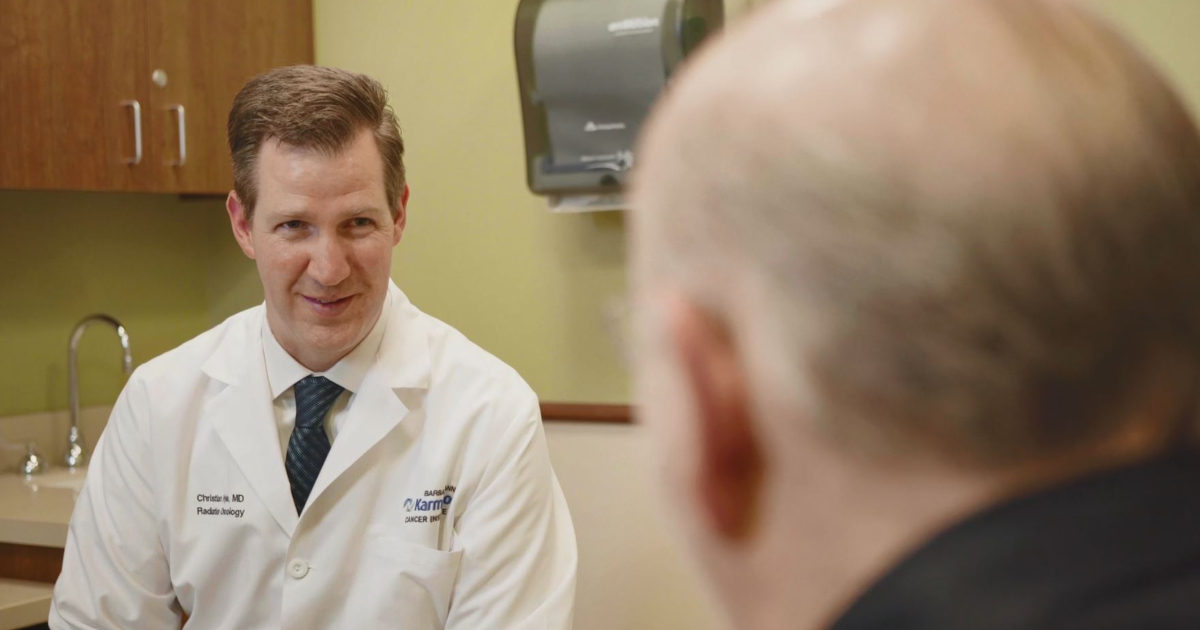Author: Matt Bueby

It can be hard to believe that a walnut-sized organ can become a problem for some men, but it is possible. According to Zero Cancer:
- One in eight men in the U.S. will be diagnosed with prostate cancer once in their lifetime.
- Prostate cancer takes the life of one man every 15 minutes.
African American men are at a high-risk of prostate cancer. For Black men, the numbers are different:
- One in six Black men in the U.S. will be diagnosed with prostate cancer once in their lifetime.
- Just over 30% of Black men over the age of 50 have been screened for prostate cancer in the past year.
Although these statistics can be scary, there are over 3 million men across the country who are survivors of prostate cancer. Christian Hyde, MD, DABR, a radiation oncologist at the Karmanos Cancer Institute at McLaren Flint, and McLaren Proton Therapy Center, says finding prostate cancer early improves the chance of cure and survival.
“If caught early, when the risk of spread is low, the cure rate for prostate cancer is really good – with a 95% cure rate at 5 years,” said Dr. Hyde. “A simple blood test called PSA can help find prostate cancer early. The death rate from prostate cancer dropped after the PSA test became routine. The PSA test can help ‘shine a light’ on whether your prostate gland is becoming abnormal, cancerous, or precancerous.”
When Should You Get Screened for Prostate Cancer?
Men who are nearing 50 years of age or older should speak with their primary care provider to understand if they should receive a digital rectal exam (DRE) or prostate specific antigen (PSA) blood test routinely. Each man’s prostate health varies - some men should have screenings at an earlier age, like in their 40s, especially if they are considered high risk. A man is considered high risk if he:
Has a family history of prostate cancer, including a father, son or brother who has been diagnosed with prostate cancer before the age of 65. A man’s risk increases when he has more than one close family member who has been diagnosed.
Is African American. African American men have a higher death rate – they are more than two times as likely to die from prostate cancer than American men with European descent.
The American Cancer Society recommends that men who are 50 or older talk with their doctor about prostate cancer screening. You can take action to understand your prostate health.
What Are the Signs and Symptoms of Prostate Cancer?
Symptoms normally do not occur in the early stages, which is why screening is so important. The most common prostate cancer symptom is issues with urination. Having trouble with urinating does not always mean a man has prostate cancer. If you begin experiencing urination issues, make an appointment with your primary care provider or a urologist.
“I’ve treated men who had no idea that they were walking around with prostate cancer until it was pretty advanced. It’s a silent disease at first,” explained Dr. Hyde.
“One young gentleman I treated was diagnosed after he became unable to urinate. The cancer grew inside his prostate until it blocked the flow of urine out of his bladder. More recently, one of my professors, who was instrumental in my radiation oncology education, developed prostate cancer that spread to his bones. Sadly, it might have been caught earlier with a PSA test, but once it had spread to the bones, it was no longer curable. Unfortunately, he passed away from his disease, and we all miss him terribly.”
Men, you can be proactive to understand your prostate health and receive regular PSA screenings. If you need a new primary care physician to speak with about your prostate health, please visit mclaren.org/flintappointments.